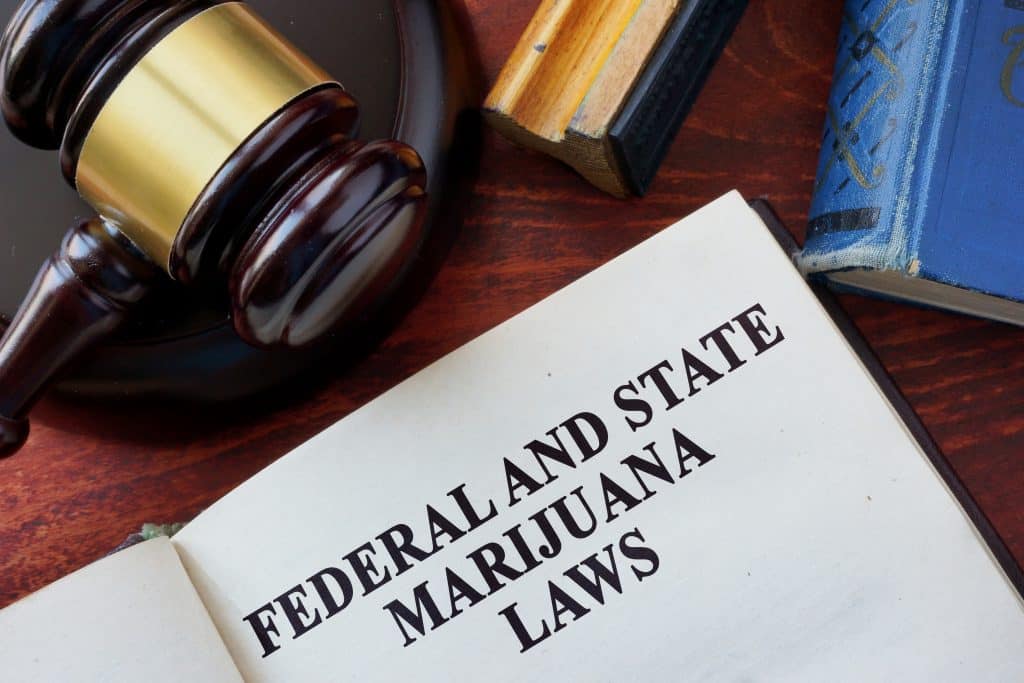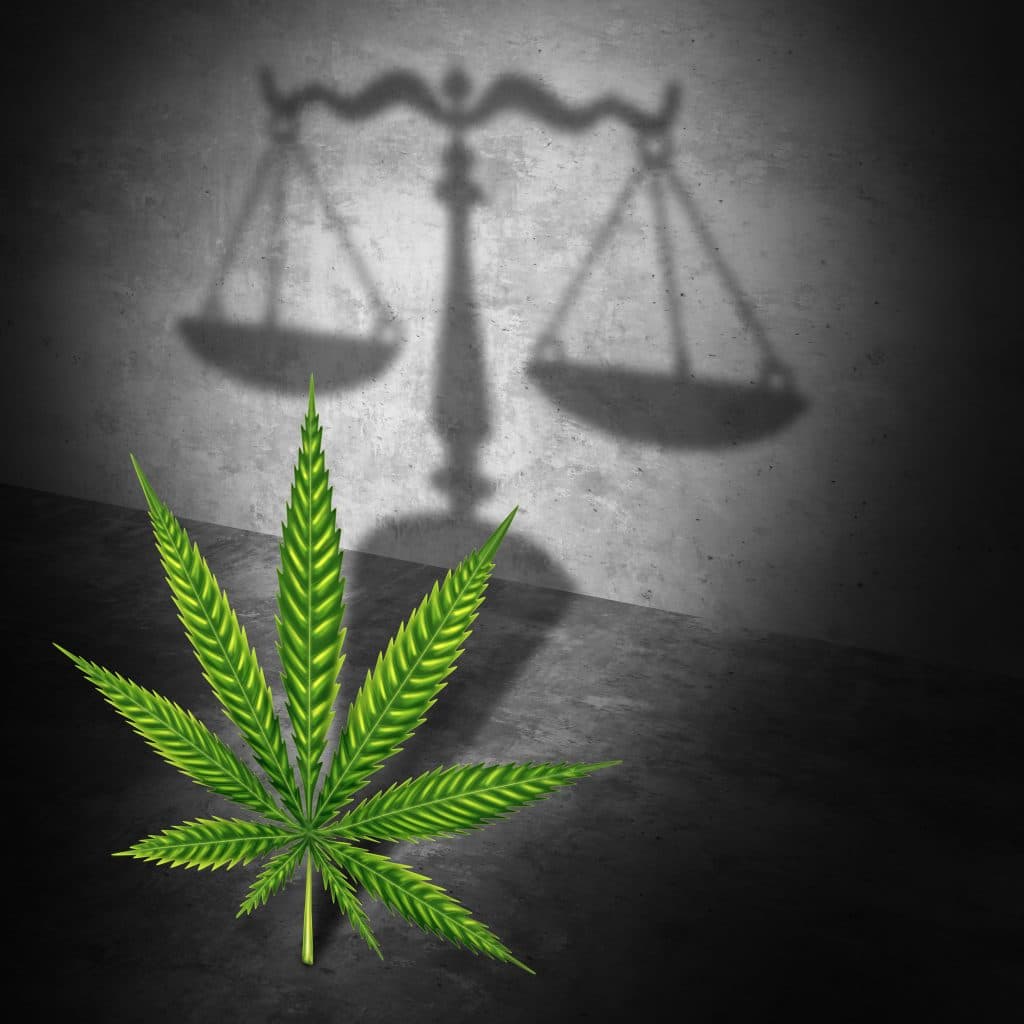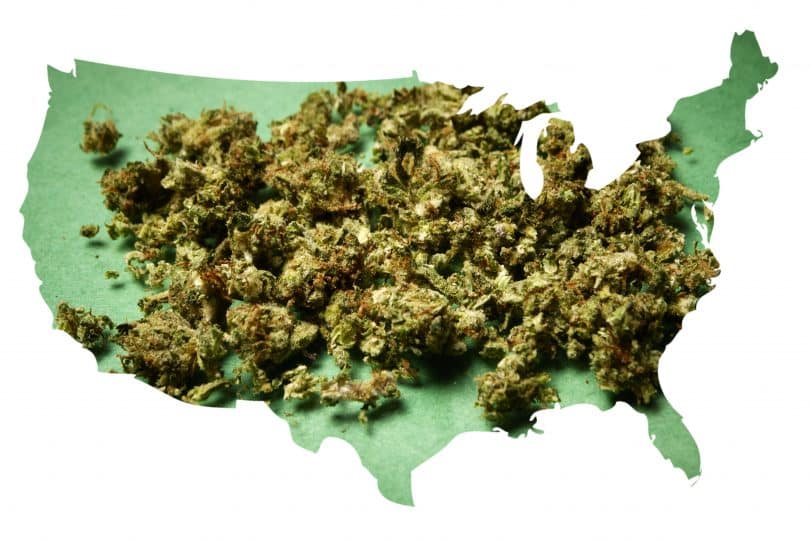Nope, not drop like he left it behind. Chuck Schumer, who has been working on a cannabis bill for quite some time, finally made it official. What’s the deal with this new bill, and could this be what finally legalizes cannabis in America?
Chuck Schumer just unleashed his new cannabis bill, and if it passes, it will legalize cannabis throughout the US. Does it have a chance? We’re a wholly independent news publication specializing in cannabis and psychedelics reporting. Join in on the experience by subscribing to the THC Weekly Newsletter, which also nets you access to promotions on smoking paraphernalia, edibles, and cannabinoid compounds like HHC-O, Delta-8, Delta-9 THC, Delta-10 THC, THCO, THCV, THCP, and HHC. These days cannabis options are unlimited, so shop carefully, and only buy products you’re happy with using.
The bill
After months of circulating it around for feedback and review, Chuck Schumer finally officially presented his new cannabis legalization bill on Thursday, July 21st. The Cannabis Administration and Opportunity Act can be considered either a decriminalization or a legalization. It would effectively decriminalize on a federal level, while leaving individual states to create their own specific legalization policies.
This bill is not new at all. It’s not just that Schumer has been shopping it around, but he’s been doing so for over a year. It was, prior to July 21st, a discussion draft only. This means it was never up for vote, and Schumer could spend the time getting feedback and updating it, so as to give it the best chance of passing. Bills fail all the time when there isn’t enough support, and it seems Schumer was doing everything he could to ensure his bill would get support once officially put out there.
Chuck Schumer is a democratic senator who’s been the senate majority leader since January 2021. Generally speaking, proposing a democratic bill to a democratic-led senate, should mean a good possibility of passing. However, it’s not always that simple, and this bill is a good example of why. The Senate has consistently killed previous cannabis bills, which is why Schumer shopped around his bill so much before presenting it.

Said Schumer last year to Politico, “When a state like South Dakota votes by referendum to legalize, you know something is out there… The American people started speaking sort of with a clear message. More than two-to-one, that they want the law changed.” It should be noted that Schumer used the example of a state that voted in recreational cannabis, and then had it taken away by its own governor.
What’s in the bill?
If Chuck Schumer gets his cannabis bill to pass, here are some of the particulars it would institute concerning cannabis in the US.
- The expungement of cannabis-related records on a federal level
- The funding for law enforcement to fight those cultivating illegally
- The establishment of social equity programs in the form of grants for small business owners who come from communities hit hard by the war on drugs
- The requirement for the Department of Transportation to come up with standards for driving while impaired
- The restriction of cannabis product marketing directed at minors
As a note on a couple of these points, there has been nothing linking driving issues with cannabis use, and in fact, current research points to less traffic issues in legalized states. Plus, plenty of other research says legalizations don’t increase new user numbers, which automatically indicates that there shouldn’t be an increase in driving issues either, as its already been the most popular drug for so many decades. So long, that its realistically silly to assume that these legalizations are whats getting anyone to do anything. A provision like this stands to treat drivers unfairly, even if they haven’t done anything wrong; and is likely meant as a way (both here and in individual legalized states) to collect money from residents.
The other point of note is the social equity allowance. In a recent TIME interview, two high profile economists spoke of their new book, Can Legal Weed Win?: The Blunt Realities of Cannabis Economics, which gravely calls into question the value of these social equity programs. The men point out how the laws for this are shoddy at best, and don’t take into consideration the population they’re working with, or the actual and realistic needs for getting into the industry. More and more I think these provisions are put in place to sound nice, while essentially setting people up to fail.
One last thing, the bill would also support interstate cannabis sales, something that doesn’t exist right now. This would allow businesses to expand past a single state, and legalize the ability to transfer cannabis over state lines. Right now, such an act is considered trafficking. It would also work to minimize cannabis business verticals, so as not to create monopolies in the industry.
So, why wouldn’t this bill go through?
The House of Representatives has repeatedly passed different bills of this nature, while the Senate is the more problematic arm of congress. Why is this the case? If these are democratic led bills, why wouldn’t a democratic congress work in the favor of Chuck Schumer and his cannabis bill?

The reality is that as private residents, we’re not always privy to all the moving pieces that go on in the process of passing a bill. If it really was about congressmen voting by way of the will of their constituents, it would be an open and shut case. According to Politico, national polls consistently put the approval rate at 2/3 of the population for legalized cannabis. Realistically, that should do it.
This is also reflected in 19 states with official recreational use legislation; one state – South Dakota – that voted it in and had it taken away by its governor; one out of one federal districts that legalized – DC; and two out of five territories with recreational policies – Guam and the Mariana Islands, with a decriminalization policy in the US Virgin Islands. On top of all that, 37 states have comprehensive medical policies, and nearly every state has some sort of medical allowance or decriminalization measure.
Yet, even with all this evidence of the people wanting it…its actually expected that a democratically led senate will kill the bill. Even now, many congressmen simply won’t go against federal mandate. Why this is, exactly, when their job is to serve their constituents, varies between politicians. But one of the biggest undeniable issues is outside factors, like business relationships that put money in legislator pockets. How many states would continue doling out opioids, if representatives weren’t taking money from big pharma companies?
So, while the bill technically should pass. It also very well might not. Not only would Schumer require all democrats to vote for his bill, but 10 republicans as well, in order to have a big enough majority. With some democrats already saying they won’t do it, this creates a problem. On the other hand, the bill’s unveiling only just happened, and how much pressure is created for lawmakers, could play into how they do end up voting. After all, they might like taking money from Johnson & Johnson, but they also want to keep their seats.
A final issue is that Biden himself has made different statements, and it’s hard to know if he’d sign off on a bill. He says he supports decriminalization, but doesn’t act that way. Under his administration, at least five white house staffers lost their jobs for speaking of prior cannabis use, even though some was in legalized states, and all of it was in the past. It’s hard to believe that supporting such an action, is a stepping stone to a country-wide legalization.
Maybe it isn’t shocking that an old man is sticking to his old school standards, or, it could be the exact same reason that congressmen will go against constituent wishes. But there is another truth here as well. The one where the federal government loses power every time a state goes against it, even if it tries to bury this reality. I expect if Politico published a headline blaring the weakness of the federal government in getting its states to follow federal mandate, weed would be legalized overnight. For this reason, I expect if the bill manages to get through, Biden will ultimately sign it.

What about the other bill?
There is yet another cannabis bill making the rounds in congress. The MORE Act, aka The Marijuana Opportunity, Reinvestment, and Expungement Act (H.R. 3617), passed the House of Representatives on April 1st of this year. That bill is often touted as a decriminalization bill, as it lacks the structure of Schumer’s bill. However, it also acts as a legalization, as it sets tax rates for cannabis sales.
Should this bill pass, it would de-schedule cannabis from Schedule I, and take it off the Controlled Substances list, entirely. By doing this, it would invalidate certain crimes and punishments related to cannabis, free those being held for such crimes, and expunge records. This bill, like Schumer’s, would leave individual states to set their own local legalization policies.
And what of the tax? The bill introduces a 5% tax on cannabis products, with a rise to 8% over a period of time. I expect the word ‘decriminalization’ is used as a marketing line because it sounds less extreme than the word ‘legalization’, for those still in the middle of the road. It should be remembered, though, that the government can’t tax an illegal or even decriminalized industry. That the bill incorporates this, means the bill would be allowing legal markets, making the bill a legalization measure, regardless of the words used to describe it.
This bill is in the same place as Schumer’s at the moment, with backers trying to build support to get it through a senate vote. Which bill is more amenable to passage in the Senate is hard to say, but it’s certainly a competition now, and it will be interesting to see how everything plays out.
Conclusion
The sad part of all this is how badly politicians are ignoring their constituent’s desires, and how not-well-understood this is by constituents. I don’t really like either of these bills, and am disappointed by the legal weed industry in general. But I also think whatever can be done to keep kids from going to jail for smoking a joint, should be done as fast as possible.
Hey guys! Thanks for making it over to Cannadelics.com (formerly known as CBDtesters.co), your first choice for independent news reporting on the cannabis and psychedelics spaces. Join us for daily updates on important happenings, and sign up for the THC Weekly Newsletter, so you’re always on top of what’s going on.







